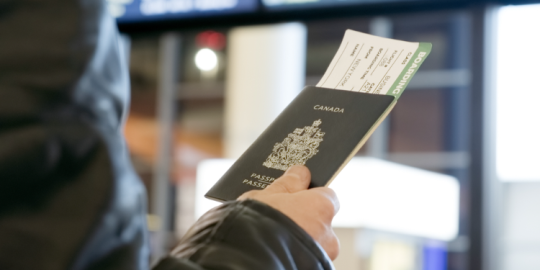The UK is offering funded training to expat teachers
The state of immigration in the UK is a conundrum: as reported by The Guardian, while the current Conservative government wants to reduce the net immigration rate, the NHS (public health services) and public education system are scrambling to recruit skilled expat workers because of a severe labor shortage.
Why does this shortage in education exist? Not only are not enough locals joining education, but many existing local teachers are also resigning and transitioning to other careers. A survey of the UK's Department of Education (DeF) shockingly found that 9% of all public school teachers, representing 40,000 teachers, resigned before their retirement in the single 2022-2023 school year. Insatisfaction with their pay, long working hours (sometimes leading to burnout), and a lack of support/resources to handle pupil misbehavior have been cited as the reasons behind the mass resignation of local teachers.
The UK government has launched a special campaign called Get Into Teaching. They guide people interested in a teaching career by giving them one-to-one support on the phone. The good news is that they also offer this personalized support to international applicants, including those from outside the EU/EEA.
Qualified Teacher Status (QTS) is required to become a full-fledged teacher in the UK. There are multiple ways to get QTS: a 1-year academic course; a course combined with paid placement in a school; and getting it directly through assessment (only for experienced teachers, even if this experience is in another country and system).
If fully self-funded, the 1-year course can be expensive for international applicants: around £15,000 (~US$20,000) in fees, plus living costs. However, because of the severe shortage for some subjects, state funding is available to sponsor even international applicants. Prospective expat secondary school teachers who teach modern foreign languages (Spanish, French, German) or physics can receive a bursary worth up to £28,000 or a scholarship worth up to £30,000 for a QTS course. There exists an online training called iQTS (International Qualified Teacher Status) tailored to non-UK teachers, but this cannot receive UK state funding.
School Direct, or salaried teacher training, on-site in the UK is also a great option for free training for expat teachers. They are paid a minimum salary during their 1-year or 2-year training, which is £20,598 in England in general and up to £25,831 in inner areas of London with a higher cost of living. The hitch? This training requires a valid work visa in the UK, even if the expat does not have indefinite leave to remain or permanent residency. The school or training program cannot sponsor a work visa for them, so they need another visa such as the Graduate Visa, High Potential Individual (HPI) Visa, or India Young Professionals Scheme Visa. The duration of your visa must overlap with the duration of the salaried teacher training program you enroll in – the training must not be even one week longer than your visa duration.
Last year, a pilot project was introduced to pay expat teachers a £10,000 relocation package to move to the UK to work or work and train simultaneously. It was only for physics and modern foreign language teachers. Unfortunately, this program has been discontinued this year. Education stakeholders, including the Universities Council for the Education of Teachers, have criticized this cancelation because the Department of Education failed to meet 50% of its recruitment goals last year.
There is a shortage of English teachers in France
The French newspaper Le Monde reports that, at the start of the new academic year in September 2023, there were a whopping 3,000 unfilled teaching positions in French public schools. A survey of the SNES-FSU, an organization of unions of high school teachers, found that at least one teaching position remains unfilled in 1 out of 2 middle schools (“collèges”) or high schools (“lycées”).
The challenges in recruiting or retaining local teachers are similar to those in the UK: stagnating wages or wages that are lower than the average in OECD countries, long working hours, and high student-teacher ratios in classrooms. As explained by Rokhaya Diallo in The Guardian piece “France's schools are in crisis – and it has nothing to do with pupils' dress” – poorer regions, which also tend to be the most ethnically diverse regions in terms of student demographics, are the most badly hit by understaffing. As an expat teacher, if you join the public education system, you are likely to get assigned to a state school in these regions – not to state schools in posh neighborhoods of Paris, which are already staffed by more experienced local teachers.
Teachers from any country in the European Union can, of course, apply directly to teach in France. How about passionate teachers from the rest of the world? There exists a route for young English teachers (no older than 35) from the US called the TAPIF (Teaching Assistant Program in France) route. English is one of the subjects with the most severe shortage in French public schools. Young Americans can teach English in French for a year if they have at least B1 (intermediate) proficiency in French. It is a great foot in the door for young graduates who do not have much teaching experience yet. However, this program does not guarantee securing a more long-term teaching position in the country.
Of course, an alternative route is to first go to France as a student and then join the workforce upon graduating. Higher education remains relatively affordable in France, as public universities have very low fees, even for non-EU students.
When expat teachers first join the French education system, they are considered unqualified teachers, even if they were fully qualified in another country. Unqualified teachers have a first degree but have not passed either of these two competitive exams yet: the CAPES (“Certificat d'aptitude au professorat de l'enseignement du second degré” or “Certificate of aptitude for secondary school teacher”) and the Agrégation. The Agrégation is for applicants with a Master's degree and is more competitive. They lead to higher-paying jobs with less intensive workloads.
As unqualified teachers, expats can get hired as contractual teachers. This means that they are on a fixed contract for a number of months or even sometimes weeks, often to fill a vacancy that has not received enough interest from fully qualified teachers. These teachers' salaries are also lower than those of fully qualified teachers.
Canada is looking for a million new skilled expats in the next 2 years – including teachers
Canada is one of the countries that is most open to immigration right now. The federal Canadian government's immigration target for the near future is 500,000 new expats in 2025 and 500,000 more in 2026 – a total of a million in two years.
Ontario, the largest province in terms of population (around 14 million), home to the capital Ottawa and the metropolis of Toronto, is one of the affected provinces by a teacher shortage. The non-profit People For Education has told the newspaper CP24 that over a quarter of all schools in the province are understaffed, with understaffing affecting more secondary schools (35%). Many schools are employing unqualified teachers on a contractual basis. While this can represent a safety and quality concern, it also allows those new to the profession, including newly arrived expat teachers who are still getting qualified, to gain valuable experience.
The francophone province of Quebec is also affected. Global News reports that the Quebecois Education Minister Bernard Drainville said at the start of the new academic year in September 2023 that there were still around 8,500 unfilled teaching positions, both full-time and part-time. Like in many places around the world, teachers in Quebec have been protesting and even going on strike to improve their pay, reduce their workload (which is difficult in an understaffed system), and create more manageable student-teacher ratios in classrooms.
Teaching in Quebec can be a good opportunity for expats from other francophone countries because French is the language of instruction in most Quebecois schools. A minority of both public and private schools in the province do teach in English, though. Even better news: Quebec eases the process for recognizing foreign qualifications for expat teachers from certain francophone countries as well as some other countries. These countries are France, Belgium, Morocco, Algeria, Tunisia, Cameroon, Ivory Coast, as well as the US, Romania, Moldova, Egypt and Colombia.
The more remote Canadian provinces of Newfoundland and Labrador, Saskatchewan, Alberta and Nunavut also suffer from a teacher shortage. The Nunavut Teachers' Association reported a vacancy rate of nearly 10% at the start of the new academic year in 2023, which is over 80 positions they are struggling to fill. Teacher salaries in Nunavut are particularly high to accommodate for the high cost of living, remoteness, and harsh climate of the region.
As reported by Nunatsiaq News, teachers in Nunavut were granted a 7% raise by the regional government two years ago. Experienced teachers with at least 10 years of experience make close to CA$125,000 there now, which is as much as a doctor, while junior teachers can start earning from CA$80,000. Even unqualified teachers, including new expats training to get fully qualified, can earn CA$ 175 per day. While moving to the northernmost region of Canada can seem daunting, it might be a great professional and financial move for expat teachers.
What are the routes to immigrating to Canada, and how do you get qualified as a teacher once you're there? The most popular skilled immigration routes, especially the Federal Skilled Worker (FSW) Express Entry Program and the Provincial Nominee Programs (PNP), are also open to teachers or prospective teachers.
If you studied outside of Canada, you would need to get your qualifications assessed through the Educational Credentials Assessment (ECA) process. If you are an elementary school teacher, you would need a Bachelor's in Education, and if you are a middle/high school teacher, a first degree in the subject you teach (e.g., chemistry, Spanish) followed by at least four semesters of a teacher education program. Given that many schools are contracting unqualified teachers because of the labor shortage, as an expat, you could well start working part-time as an unqualified teacher while studying in a teacher training program.
Useful links:
France: TAPIF
Canada: Education Assessment
Quebec: Immigrate to Quebec to teach
















